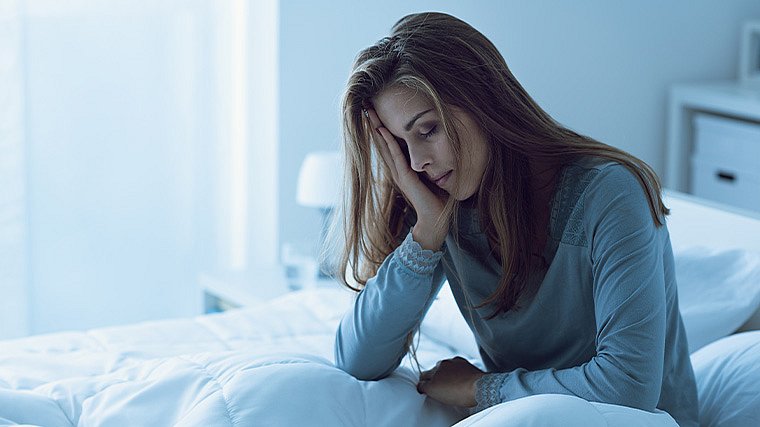Insomnia can manifest itself through frequent sleep problems, more mid-night awakenings, and shallow sleep that prevents the body’s full recovery. Many patients experience all of these symptoms at the same time and, as a result, are plagued by extreme fatigue throughout the day. Whenever you have difficulties with sleep that happen for a few nights, they may be linked to the body’s physiological response to stress. Problems with sleep persisting for up to a few weeks are referred to as short-term insomnia. In individuals experiencing sleep problems for a month, a formal diagnosis of insomnia can be made.
Symptoms of chronic insomnia last considerably longer than a month.
People diagnosed with sleep disorders experience at least several sleepless nights during the week that have an impact on their performance the following day. Occasional sleepless nights may happen even to healthy people and should not be a cause for concern. However, if they occur, it is a good idea to have a closer look at your bedtime routine and regularity of the sleep pattern.
Stress associated with going to sleep and excessive concerns about sleeplessness only make matters worse. In fact, they tend to aggravate the symptoms. So if you have problems with sleep, the best thing to do is remain calm.
People who worry excessively about their sleep often fall into the vicious circle of insomnia.
Many insomniacs feel anxious about what the night ahead may be like already during the day.
Insomnia has an adverse effect on daytime performance. Sleepless nights make us fatigued both physically and mentally. Some of the potential problems associated with chronic sleep deprivation include impaired concentration, memory problems, drowsiness, and reduced energy accompanied by loss of motivation, irritability, sadness, and mood and behavioral disorders such as impulsiveness or, in extreme cases, aggression. Excessively concerned about their sleep, some patients give up their duties, and experience negative impacts on their job performance, social and family life.
In response to sleep deprivation, the human body releases stress hormones and triggers the fight-or-flight response. When the stress in our lives becomes excessive, the body’s needs, including sleep, take a back seat. Every night is followed by another stress-filled day. The more we worry about it during the day, the harder it is to fall asleep when bedtime comes. At some point, stress may subside, but the vicious circle mechanism persists. The body remains on constant alert. Thoughts keep racing around in your head, and your mind never turns off.
This mode of body arousal is maintained even after falling asleep. Individuals afflicted by this condition are very light sleepers. Their sleep is shallow, and they wake at the slightest sound. The state is referred to as hyperarousal. Patients may experience such symptoms around the clock.
It is thus obvious that insomnia is a dangerous condition that takes away the comfort of life. If you observe these symptoms, see your doctor as soon as possible. Take a step towards restoring your body’s healthy sleep patterns.

